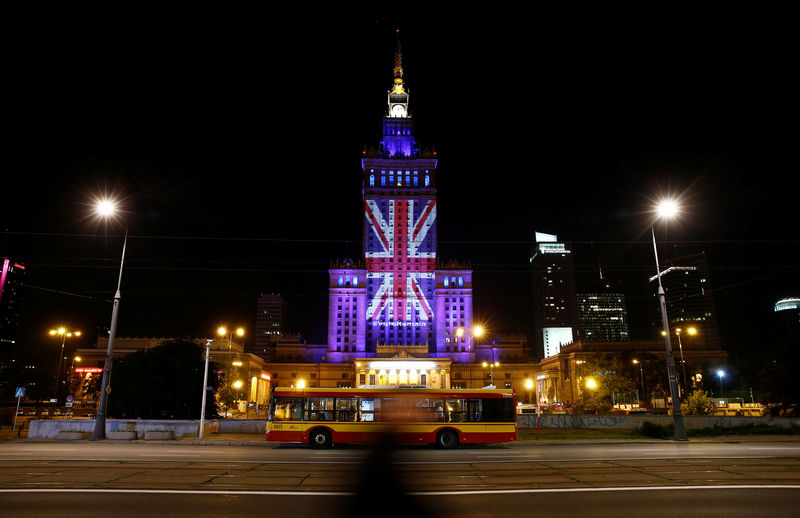By Anna Koper and Agnieszka Barteczko
WARSAW (Reuters) - After Britain decided to leave the European Union, Emilia Kos, a 31-year-old mother of three from Scunthorpe in eastern England, faced a choice of her own.
She could visit her family in Poland once a year, or she could take a holiday abroad. The plunge in the value of the pound after the June 2016 referendum on EU membership meant she could only afford one.
That, coupled with a fear they are no longer welcome in Scunthorpe, persuaded her to move back to Poland last month, after nine years in Britain.
"A weaker pound meant we had to choose between a holiday and a visit home," Kos said at her new home in Wroclaw. "We can afford to live in Britain, but it isn't comfortable to have to tell your family that you won't come for Christmas because you want to go to Greece."
She is not alone. Families like hers that headed to Britain after the ex-communist states of eastern Europe joined the EU in 2004 increasingly are heading back.
Economics are one reason. The local economies are booming and unemployment has dropped to record lows. But it's not the only factor.
"Brexit was an official statement from the Brits: we don't want you here," said Szymon Kudzma, a 33-year-old IT specialist who lives in Rushden in Northamptonshire, England. He plans to return to Poland before the end of the year, after 14 years in Britain.
For immigrants like him, the economic benefits of living in the west no longer outweigh a sense of alienation abroad and the hostility toward migrants in Britain. The roughly 800,000 Poles living there fuelled an emotive debate over immigration that helped the "Leave" side win the Brexit vote.
"We could feel Brexit in the air for a long time," said Kos, who lived in Lincolnshire, a relatively euro-sceptic part of Britain.
"We felt pressure from the English. A friend of mine wasn't able to speak Polish at work ... Clients sometimes walked out of my partner's store when they learned he was Polish."
TURNING TIDE
UK statistical data showed last month that net migration fell to its lowest in three years in the 12 months to the end of March. The biggest drop came from eight eastern European countries, including Poland and Hungary, that joined the EU in 2004 [nL8N1LA2BH].
In Poland, official data show fewer than 3,000 people registered with the authorities as emigrating to Britain in 2016, down from more than 7,000 in 2014. More than 3,000 Poles registered as returning last year.
"We see very clearly that more and more Poles are coming back to Poland. Our analyses show that this trend has accelerated after the Brexit vote," said Michal Brzezinski, chief executive at a Polish moving company, Clicktrans.
In the first quarter of 2017, moves to Poland from abroad recorded by Clicktrans were almost three times greater than the moves from Poland abroad. In 2014, more Poles wanted to emigrate than return.
More than 80 percent of moves organized by Clicktrans so far this year between Poland and Britain were returns. Two years ago, the same number emigrated to Britain as came back.
Many of the returnees say the economic calculations don't add up anymore, even if average wages in Poland are still a fraction of pay in Britain.
The wage gap has narrowed since 2004, unemployment is down to 7 percent from more than 20 percent, and Warsaw' conservative government introduced child subsidies in 2016.
Britain's decision to leave the EU has also improved employment prospects at home. London-based banks and other financial services are looking for new bases for some operations in countries that will remain in the EU, such as Poland.
"I don't think our living standards will change significantly after we return," said Kudzma, the IT specialist in Northamptonshire. "The IT sector is well-paid in Poland. Our wages will be smaller than in Britain, but the cost of living is lower. The balance should remain the same."
For many of the returnees, the pound's decline means their savings are dwindling or the help they send to families in Poland costs more. Sterling has lost 20 percent of its value against the zloty since the Brexit vote and 35 percent since Poland joined the EU, according to Reuters data.
"For us, the worst thing is that we had already been thinking about going back, and the decline of the pound means we lost a lot of money," said Monika, 35, an accountant living outside of Warsaw while on maternity leave from her UK employer.
